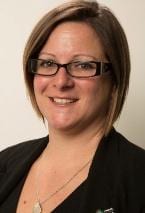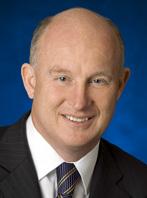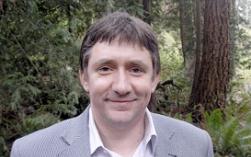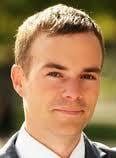
Sussanne Skidmore-Hewlett, NDP, Nechako Lakes Credit: Courtesy of Sussanne Skidmore-Hewlett

Mike Farnworth, NDP, Port Coquitlam Credit: leg.bc.ca

Nicholas Simons, NDP, Powell River-Sunshine Coast Credit: nicholassimons.ca

Spencer Malthouse, Green, Victoria-Swan Lake Credit: Courtesy of Spencer Malthouse
As British Columbians head back to the polls on May 14, they will once again find nine openly gay candidates on the ballot, just as they did in 2009.
Like last time, the candidates span the political spectrum. The NDP is fielding five openly gay candidates, down from six in the last election. The Greens are once again fielding two, and the Conservatives were fielding two before firing Ron Herbert April 28 for allegedly making misogynist comments on social media.
Herbert is now running as an independent and won’t comment on why he was fired. According to his now-removed BC Conservative party biography, he was the first openly gay president of the UBC Young Conservatives.
The BC Liberals, who pitted a lesbian candidate against a gay NDP incumbent in the West End in 2009, did not respond to Xtra’s repeated requests for information on queer candidates this time.
NDP incumbent Spencer Chandra Herbert says the number of openly queer candidates is inspiring. “People realize it’s not a stigma,” he says. “It shows that politics is catching up to what the people want.”
Now running against Chandra Herbert as an independent “small c” conservative, student Ron Herbert (no relation) says he’s pleased that candidates are no longer pigeonholed as “queer candidates.”
“It’s a testament to our social progress,” he says. “It’s as superfluous as ethnicity.”
Mable Elmore made history as the first Filipina elected to the BC legislature in 2009. Now the NDP incumbent for Vancouver-Kensington, she says sexual orientation is no longer a barrier to running for politics.
“You have the right to love whoever you love,” agrees NDP Nechako Lakes candidate Sussanne Skidmore-Hewlett. “It’s not on people’s agenda anymore.”
She says the queer community’s issues overlap with those of the community-at-large in her area. People want to talk about healthcare, education and the Enbridge oil pipeline from Alberta to BC’s north coast, she says. “All the issues in this election are our issues.”
But, she adds, the issue of homophobic bullying remains a particular concern. “It’s less common for kids to get attacked in school, [but] it still happens,” she says.
Skidmore-Hewlett is pleased the NDP has committed to school codes of conduct that address homophobia and transphobia. “It’s right up at the front of the platform,” she says. “It’s a really positive message.”
NDP incumbent Mike Farnworth, who has represented Port Coquitlam off and on since 1991, agrees that school codes of conduct are a provincewide issue — one the NDP will address if it wins the election.
Ensuring that members of the transgender community have access to the healthcare they need is also a priority, he adds.
Farnworth says the numbers of out queer candidates standing for election is “an indication of how far we have come as a society.”
“People really don’t care,” he says. “I haven’t found it an issue [in Port Coquitlam], and I didn’t find it an issue during the leadership race.”
“The public expects people of all sexualities, ethnicities and backgrounds to be able to speak on issues,” agrees NDP incumbent Nicholas Simons, who has represented Powell River-Sunshine Coast since 2005.
He, too, is pleased to see queer candidates of all stripes in the race.
“People want to know you’re competent,” he says. “They’re not into your private life.”
Since his election, Simons has served as opposition critic for community living and deputy critic for social development and housing. He’s spent more than 15 years working in the areas of health, justice, social services and child welfare.
Farnworth has served in numerous cabinet positions, including as minister of health and minister of social development and economic security.
Green Party candidate Karen McDowell has been involved in various volunteer groups in her 10 years in Prince George, including the Northern Pride Society and the GenderOutlines support group, which she co-facilitates.
The mother of two, running in Prince George-Mackenzie, says the primary issues this election are the environment, social justice and jobs.
She believes British Columbians have been liberated from strict definitions of what people should be, a change that has helped the electoral process and encouraged queers to run. “What we classify as gender is a social construct,” McDowell says. “They’re rejecting that. Love is love and gender is fluid.”
The Green Party’s second queer candidate is Spencer Malthouse, running in Victoria-Swan Lake.
Malthouse has worked as a fundraiser for the World Wildlife Fund, Doctors Without Borders and UNICEF. He is now a financial services professional and serves as the regional Pride and diversity representative for his company.
He thinks sexuality isn’t relevant in political campaigns anymore. “We have seen an evolution to have a more diverse political process.”
Malthouse has worked on anti-bullying issues in the past and says addressing its root causes and teaching children that “queer is not different” is vital. He believes the Green platform goes beyond the NDP’s in pledging support for queer youth and education on gay issues.
He says equality for the queer community still has a way to go, but adds, “we’re at a point now where we’re tying up loose ends.”
He says that as the community moves on, it’s mainstream issues that are of concern, citing affordable housing and building a sustainable economy.
The Conservative Party’s remaining gay candidate is Ian McLeod, in West Vancouver-Sea to Sky. According to his party biography, McLeod was born in New Westminster, began his career working as an intern for congressman Frank Riggs in California, and currently works for BC Liquor in distribution centre operations.
McLeod is also vice-president of the Vancouver–West End BC Conservatives and ran as a Conservative candidate in the 2008 by-election and 2009 general elections. He also ran in 2005 with the Democratic Reform party. He did not return Xtra’s calls by press time.

 Why you can trust Xtra
Why you can trust Xtra


